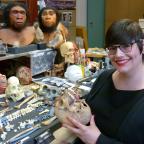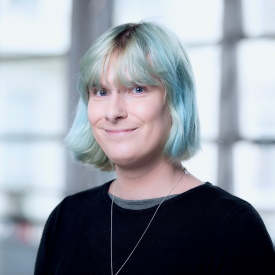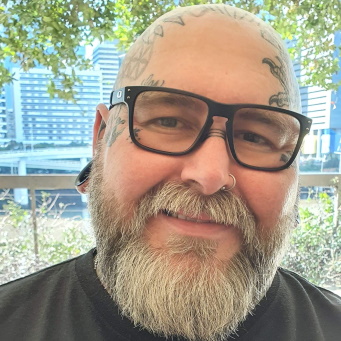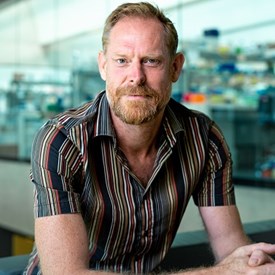Professor Andrew Goodwin FRS reflects on his experiences as an LGBTQ+ scientist whilst advocating for allyship as a vital tool for creating a more inclusive research culture.
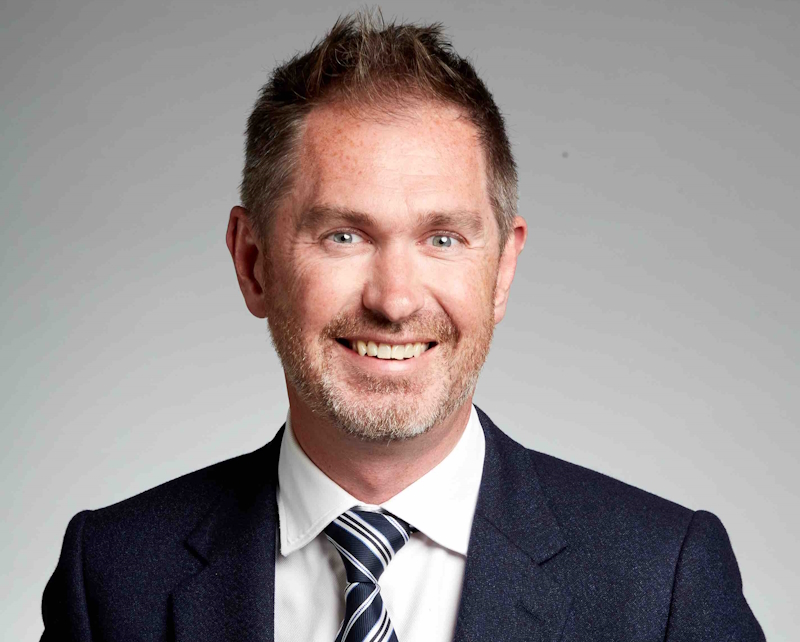
Growing up, chemistry was always part of my life. My father was an inorganic chemist, and I grew up with chemistry around me all the time. I studied chemistry and mathematics during my undergraduate years, and, slowly but surely, materials chemistry drew me in. I realised it was a unique field where geometry and chemistry intersect in fascinating ways.
Currently, one of the most exciting areas in materials chemistry for me is exploring the role of disorder in materials. It’s fascinating that even when atoms are arranged in seemingly disordered states, there are still intricate patterns that could affect the material's properties. Discovering that atoms can organise themselves in ways we've never imagined is thrilling and a constant reminder of how much there is still to uncover.
Fellowship
A recent milestone in my career was being elected as a Fellow of the Royal Society. It’s an honour I never thought I’d receive, and I still pinch myself. One of the most meaningful aspects of this recognition was reflecting on the journey I’ve had as an openly gay man in science. When I came out to my father, his main concern was whether being LGBTQ+ would hold me back in my career. For me, being recognised as a Fellow of the Royal Society represents not just scientific achievement but also a reassurance that my sexuality hasn’t limited me. It’s a sign of how much things have changed since I started in academia.
When I was growing up, homophobia was far more visible. I didn’t have any LGBTQ+ role models at the time, and for much of my early career, I didn’t even know of any openly LGBTQ+ scientists. Early in my career, I presented myself as straight because I worried about how coming out might affect my professional relationships. Now, it’s much less prevalent, at least in the academic spaces I've been in. I also recognise my privilege as a gay white man - I’ve had it easier than many others in the LGBTQ+ community.
Throughout my career, I've witnessed a significant shift in allyship for LGBTQ+ individuals within the scientific community. When I set up my research group 15 years ago, allies were much less visible, and it often felt like navigating my identity was a solitary journey. At that time, discussions around inclusion were sparse, and support networks were harder to find. Now, however, things have improved drastically, especially within my own research group. The students I supervise and work alongside are not only openly supportive allies but also actively foster an inclusive environment. This change reflects a broader cultural shift where diversity and inclusion are now seen as essential, not optional.
Future focused
In my opinion, to truly increase representation and acceptance for LGBTQ+ people in science, it's critical that those in senior positions, for example Fellows and established scientists, take on the mantle of active allyship. Throughout an academic career, it’s likely that many of us will be in environments where we hear homophobic, sexist, and racist comments and it’s our responsibility to speak up. Our influence and visibility can help shape research culture, providing the mentorship, protection, and support needed for the next generation to thrive authentically. Currently, only a handful of Royal Society Fellows openly identify as LGBTQ+ out of nearly 2,000. I hope that as visibility increases, so too will diversity within the Fellowship.
I envision a future where, one day, identity - whether it’s gender, sexuality, ethnicity, or anything else - are no longer topics of discussion in science. We're not at that stage yet, and to make this vision a reality, active allyship and intentional efforts towards inclusivity are essential. Science thrives on the diversity of ideas, and we must ensure that the scientific community reflects this truth.



